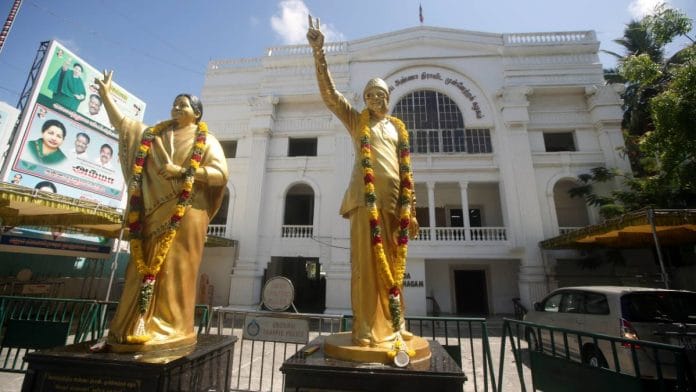In the intricate fabric of Indian democracy, few questions strike at the heart of equality and representation like that of caste. The recent announcement by the Union government to conduct a comprehensive caste census is a landmark moment—one that promises to reshape the contours of social justice policy in India. As the Leader of the Opposition in Tamil Nadu, I welcome this move with conviction and pride, for it affirms a demand the All India Anna Dravida Munnetra Kazhagam first articulated with clarity and foresight.
From vision to action
This moment did not emerge overnight. The call for a caste-based census, now accepted at the national level, has its roots in the firm ideological soil of Tamil Nadu’s social justice movement. And in that journey, it was the AIADMK, under the visionary leadership of Puratchi Thalaivi Amma J. Jayalalithaa, that laid the foundation for genuine representational equity.
As early as 2021, during my tenure as chief minister, our government was among the first to demand a fresh caste census. We argued vociferously that welfare policies cannot be built on outdated data from 1931. We recognised then, as we follow now, that progress requires not just empathy but evidence.
Tamil Nadu has long stood as a beacon of affirmative action, with its unique 69 per cent reservation policy. That achievement was not accidental but was made possible by AIADMK’s political resolve and constitutional acumen. When the Supreme Court’s Indra Sawhney (Mandal) judgment in 1992 imposed a 50 per cent cap on reservations, the very framework of Tamil Nadu’s policy was threatened. But Amma Jayalalithaa rose to the challenge. In 1993, she convened a special assembly session, passed a unanimous resolution, and led an all-party delegation to Delhi. Her persistent persuasion ensured the Tamil Nadu Reservation Act was placed in the Ninth Schedule of the Constitution, protecting it from judicial review. That was not just governance; it was transformative leadership.
Also read: Dear Shekhar Gupta, don’t fear caste census. Let it prove private sector has no caste inequality
Duplicitous claims of DMK
Our 2021 demand for a caste census was not political posturing. It was a reflection of AIADMK’s long-standing understanding of Tamil Nadu’s evolving social realities. We recognised the urgent need to reassess the representation and well-being of Backward Classes (BC), Most Backward Classes (MBC), Scheduled Castes (SC), and Scheduled Tribes (ST) in education, employment, and welfare.
This demand, when initially raised, was met with silence from the ruling DMK. But the party now conveniently claims to be a torchbearer of this cause. It was only in late 2023 that the DMK Chief Minister wrote to the Prime Minister, echoing what we had already taken to the people. Thanks to the Union government’s announcement, it has finally become a part of the national agenda and exposed the duplicitous stand of DMK on representative caste census.
Even today, the DMK’s steps appear more opportunistic than pioneering. Their one-man commission on caste enumeration, announced with fanfare, has yielded little clarity or direction. Unlike the AIADMK, which took bold, constitutionally binding action, the DMK has often been content with symbolic gestures.
Our record speaks for itself
The historical trajectory of reservation is inseparable from AIADMK’s legacy:
- In the 1980s, MG Ramachandran, AIADMK’s founder, raised BC reservations to 50 per cent, bringing the total quota to 68 per cent.
- By 1990, the quota stood at 69 per cent. But when the courts cast doubt on its legality, it was Madam Jayalalithaa who protected it through constitutional means.
Also read: Blow to Yogi, Fadnavis, Gadkari—caste census will change criteria for PM Modi’s successor
Issue finally gets its due
Today, Tamil Nadu remains the only state with such a robust reservation policy, safeguarded by constitutional protection—because AIADMK did not waver in the face of opposition.
With the Union government now committing to conduct a caste census, AIADMK welcomes this historic and courageous decision. We believe this data will not only help tailor welfare policies to contemporary needs but will also allow for more accurate and fair distribution of resources and representation. It is heartening to see this issue receiving national attention, and we commend our allies at the Centre for recognising its importance.
This census will gather detailed demographic data on caste distribution, education levels, employment patterns, and socio-economic status across the country. Its findings could reframe how reservations are allocated, how social schemes are targeted, and how the state and Centre together approach the long project of inclusive development.
Also read: BJP’s caste census move is reformist. Congress is clinging to religion-based reservation
Electoral calculation vs. moral clarity
One must ask, why did the DMK hesitate for so long? The answer lies in their electoral arithmetic. A full and transparent caste census could disrupt the fragile caste alliances that the DMK has carefully built over decades. The AIADMK, by contrast, has always believed that uncomfortable truths are better than convenient fictions. For us, justice must be grounded in facts—and for it we stand unwavered.
The DMK’s sudden support for a caste census appears less an act of ideological commitment and more of political compulsion. Their delays and diversions on this issue contrast sharply with the AIADMK’s clarity and consistency.
A caste census is not a panacea, but it is an essential tool. If we are to build an India that truly represents all its people, we must start by knowing who those people are, where they stand, and how far they still must go. Tamil Nadu must once again lead by example.
Edappadi K. Palaniswami is former Chief Minister of Tamil Nadu, the general Secretary of the AIADMK, and Leader of Opposition, Tamil Nadu Legislative Assembly. His X handle is @EPSTamilNadu. Views are personal.
(Edited by Zoya Bhatti)







AIADMK ??